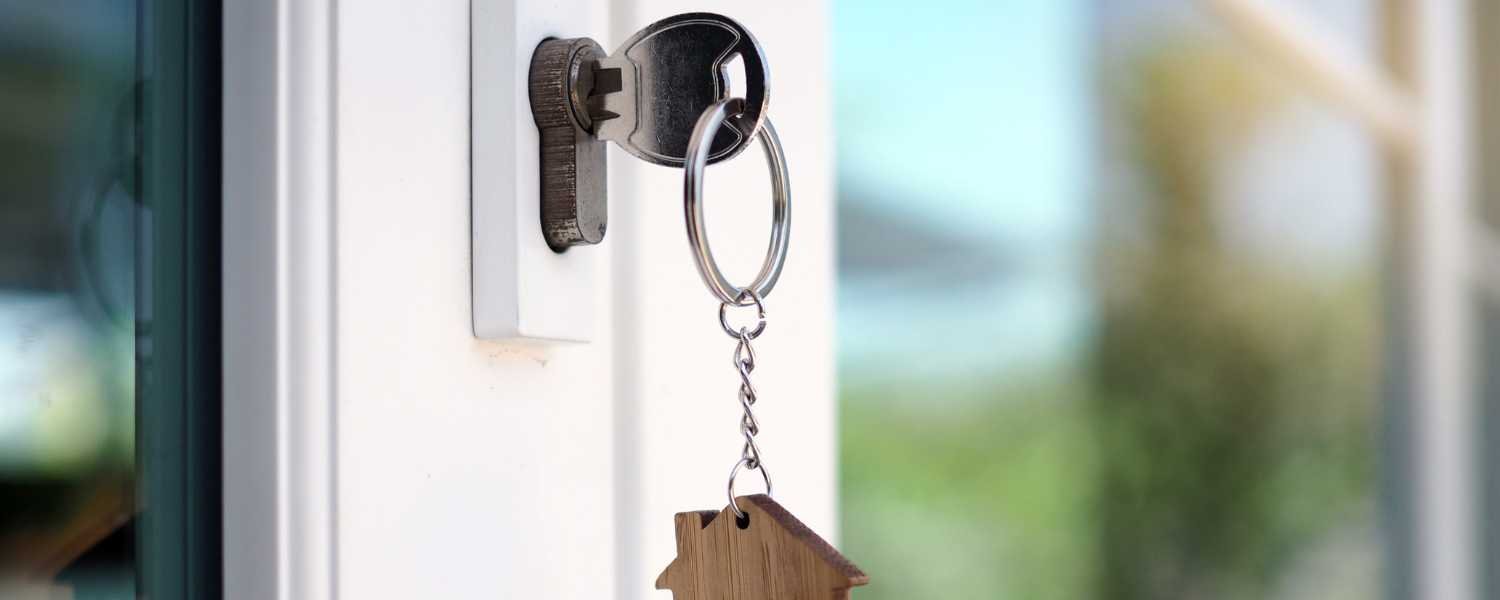House rules for renters play a crucial role in fostering a harmonious living environment and ensuring mutual respect between tenants and landlords.
These rules serve as guidelines that outline the expectations, responsibilities, and boundaries for those occupying a rented property.
From maintaining cleanliness to respecting quiet hours, these regulations aim to create a conducive atmosphere for all residents.
Understanding and adhering to these house rules promote community and help prevent potential conflicts or misunderstandings.
For renters, familiarity with the house rules is essential before moving into a new place.
It allows them to align their lifestyle and habits with the expectations set by the landlord or property management.
Clear and transparent communication regarding these rules helps tenants feel more secure and confident in their living arrangements.
Conversely, for landlords, establishing comprehensive house rules ensures the protection of their property and the well-being of their tenants.
House rules for renters often cover various aspects, including but not limited to noise levels, guest policies, maintenance responsibilities, smoking or pet regulations, and parking guidelines.
By following these rules, tenants demonstrate respect for their living space and consideration for their neighbors.
Ultimately, a well-defined set of house rules fosters a positive living experience for everyone involved, creating a sense of stability and security within the rental community.
1. Respect Quiet Hours

Respecting quiet hours is an essential part of following house rules for renters.
During specific periods of the day or night, residents must keep noise levels to a minimum.
These periods are known as quiet hours.
Everyone in the community is ensured to have a peaceful and quiet environment, particularly during their resting or sleeping hours.
Renters should be mindful of noise from activities such as playing loud music, watching TV at high volume, or engaging in loud conversations, particularly during the evening and early morning hours.
Additionally, noise from pets or moving furniture should be minimal during quiet hours.
By respecting quiet hours, renters can contribute to a harmonious living environment and show consideration for their neighbors.
It’s important for renters to familiarise themselves with the specific quiet hours outlined in their rental agreement or community guidelines and to make a conscious effort to adhere to them to maintain a positive relationship with their neighbors and ensure a peaceful living environment.
2. Keep Common Areas Tidy

House rules for renters often include a guideline to keep common areas tidy.
This means that all tenants should take responsibility for cleaning up after themselves and ensuring that shared spaces like the kitchen, living room, and bathroom are kept clean and organized.
Common areas should be free from clutter, trash, and personal belongings.
Tenants may be required to take turns cleaning common areas or adhere to a schedule for cleaning duties.
Tenants can ensure a comfortable living environment for everyone in the household by maintaining the cleanliness of shared areas.
This rule helps promote respect and consideration among tenants, fostering a harmonious and cooperative living arrangement.
Additionally, maintaining cleanliness in shared spaces contributes to the overall well-being and hygiene of the household, reducing the risk of pests, odours, and other issues.
Overall, keeping common areas tidy is an essential aspect of house rules for renters, ensuring everyone deserves to live in a clean and welcoming environment.
3. Notify in Advance for Overnight Guests

When renting a property, it’s essential to establish clear house rules for renters, including guidelines for overnight guests.
One common rule is to require renters to notify the landlord or property manager in advance if they plan to have overnight guests.
This notification lets the landlord keep track of who stays on the property and ensures no unexpected visitors.
Additionally, notifying in advance allows the landlord to make any necessary arrangements, such as providing extra bedding or ensuring that the property can accommodate additional guests comfortably.
By establishing this rule, landlords can maintain control over the number of people staying on the property and prevent potential issues or overcrowding.
Overall, requiring renters to notify in advance for overnight guests is a simple yet effective way to ensure a smooth and pleasant renting experience for tenants and landlords.
4. Report Maintenance Issues Promptly

As part of the house rules for renters, it’s essential to report maintenance issues promptly.
This means letting the landlord or property manager know when you notice something that needs fixing or attention in the rental property.
Maintenance issues can range from minor problems like a leaky faucet or a burnt-out lightbulb to more significant issues like a malfunctioning appliance or a plumbing leak.
Reporting these issues promptly helps prevent them from worsening and causing further damage to the property.
It also ensures that repairs can be carried out promptly, keeping the rental property safe, comfortable, and in good condition for all occupants.
By adhering to this rule, renters can help maintain a positive and cooperative relationship with their landlord or property manager while ensuring their well-being and satisfaction with their living environment.
5. Adhere to Parking Regulations

House rules for renters often include guidelines on adhering to parking regulations to ensure a safe and orderly environment for everyone.
These rules typically specify designated parking areas for residents and visitors and may include restrictions on parking in certain areas, such as fire lanes or driveways.
Renters must usually park only in designated spots to avoid blocking access to other vehicles or obstructing traffic flow.
Additionally, renters may be instructed to display parking permits or stickers provided by the landlord or property management company to identify authorised vehicles.
Adhering to parking regulations helps prevent congestion, maintains emergency access, and promotes a sense of community responsibility.
Violating parking rules may result in fines, towing, or other consequences, so renters must familiarise themselves with and follow these guidelines to avoid issues.
Please ensure that all residents live in a peaceful and cooperative environment.
6. No Unauthorised Alterations

House rules for renters often include provisions regarding unauthorised alterations to the rental property.
These rules are implemented to protect the property and ensure any changes are made with the landlord’s permission and local regulations.
Unauthorized alterations may include painting walls, installing fixtures, or making structural changes without prior approval.
Such alterations can lead to damage, safety hazards, or violations of rental agreements.
To avoid these issues, renters should consult their landlord before modifying the property.
Landlords may have specific guidelines or procedures for requesting permission to make alterations, such as submitting a written request or obtaining written consent.
By adhering to the house rules for renters regarding unauthorized alterations during the lease term, tenants should maintain the rental property in good condition and uphold a positive relationship with their landlord.
7. Pay Rent on Time

This means ensuring the landlord receives the rent payment by the agreed-upon due date each month.
Paying rent on time helps to maintain a good relationship between the renter and the landlord.
It ensures that the renter can continue to live on the property without any issues.
It also shows responsibility and reliability, which can be necessary if the renter ever needs a reference for future rental properties.
It is essential to make timely rental payments to assist the landlord in meeting their financial obligations, including mortgage payments, property taxes, and maintenance expenses associated with the rental property.
Suppose, for any reason, the renter is unable to pay rent on time.
In that case, it’s essential to communicate with the landlord as soon as possible to discuss potential solutions or alternative arrangements.
Paying rent on time is fundamental for renters to maintain a positive renting experience for both parties.
8. Communication is Key

Hey there! If you’re renting out your property, you know how important it is to set some ground rules for your tenants.
So, feel free to speak up and establish those house rules early on.
Clear and effective communication ensures that renters understand what is expected of them and helps to prevent misunderstandings or conflicts.
When selecting house rules, it is important to communicate them clearly and in writing, such as through a rental or lease agreement.
This document should outline rules regarding rent payments, property maintenance, noise levels, and any other expectations or restrictions.
Additionally, landlords or property managers should be available to answer any questions or concerns renters may have about the rules.
Open channels like email, phone, or in-person meetings should facilitate ongoing communication between renters and landlords.
Regular communication helps to build trust between renters and landlords, fostering a positive and respectful living environment for everyone.
Effective communication is essential for establishing or maintaining house rules for renters, ensuring a smooth and harmonious rental experience for all parties involved.
9. Follow Waste Disposal Guidelines

House rules for renters often include guidelines for waste disposal to maintain cleanliness and hygiene on the property.
These rules typically outline how tenants should properly dispose of their garbage, recycling, and other waste materials.
Furthermore, guidelines may include separating recyclable items such as paper, plastic, and glass from general waste.
Using designated bins or containers for each type of waste and placing bins in designated collection areas on scheduled pickup days.
Additionally, tenants may be instructed to properly bag and tie their garbage to prevent spills or odors and to avoid leaving trash or recycling items in common areas or outside the property.
Following waste disposal guidelines helps to keep the rental property clean and sanitary, reduces the risk of pest infestations, and ensures that waste is disposed of in an environmentally responsible manner.
Adhering to these rules demonstrates respect for the property and consideration for fellow tenants, contributing to a pleasant living environment for everyone.
10. Observe Pet Policies

The landlord or property management put these policies in place to ensure the safety and well-being of the tenants and the property itself.
Pet policies typically specify rules and guidelines regarding the types of pets allowed, any breed restrictions, and the maximum number of pets permitted per household.
Additionally, they may outline requirements for pet deposits or fees and expectations for pet care and cleanliness.
It’s essential to adhere to these policies to avoid conflicts with the landlord and ensure a harmonious living environment for everyone in the rental property.
By following the pet policies outlined in the house rules for renters, tenants can enjoy the company of their furry friends while respecting the rights and responsibilities of their landlords and fellow tenants.
11. Security Measures

When renting a house, landlords and tenants need to understand and follow the rules for renters to ensure everyone’s safety and security.
These rules may include locking all doors and windows and keeping the property secure when leaving the house.
Tenants should also be mindful of who they allow into the house, ensuring that only authorized individuals are granted access.
Additionally, landlords may implement measures such as installing security cameras or alarm systems to protect the property from intruders.
It’s also essential for tenants to promptly report any suspicious things or security concerns to the landlord.
By adhering to these house rules for renters, landlords and renters can work together to create a safe/secure living environment for everyone involved.
12. Be Mindful of Energy Consumption

When renting a house, you must be mindful of energy consumption to save money and reduce environmental impact.
Follow these house rules for renters to help manage your energy usage effectively.
First, turn off lights, appliances, and electronics when not used. This simple habit can significantly lower your electricity bill.
Next, consider using energy-efficient appliances and light bulbs, which consume less electricity while providing the same level of functionality.
Additionally, seal windows and doors to prevent drafts and keep your home’s temperature stable, reducing the need for heating or cooling.
Another tip is to limit the use of high-energy-consuming appliances, such as air conditioners and heaters, by using them only when necessary and setting them to the most energy-efficient settings.
Finally, consider renewable energy options, such as solar panels, to reduce your carbon footprint further.
By following these house rules for renters and being mindful of your electricity consumption, you can save money on utility bills for a greener planet.
Conclusion
Establishing clear house rules for renters is paramount for fostering a harmonious living environment and ensuring mutual respect between landlords and tenants.
These rules define expectations and outline boundaries and responsibilities, contributing to a positive rental experience for all parties involved.
By delineating guidelines regarding noise levels, guest policies, maintenance responsibilities, and other pertinent factors, landlords can mitigate potential conflicts to maintain the integrity of their property.
Moreover, house rules give renters a framework for understanding their obligations and rights within the rental agreement.
This transparency cultivates a sense of accountability and encourages tenants to uphold the standards set forth by the landlord.
Additionally, communicated rules help to avoid misunderstandings and disputes, ultimately promoting smoother communication and cooperation between landlords and renters.
Implementing comprehensive house rules for renters is a proactive measure that benefits property owners and tenants alike.
It sets the stage for a respectful and cooperative living arrangement, enhancing overall satisfaction and well-being.
By prioritizing clarity, communication, and mutual respect, landlords can create a conducive environment where renters feel valued and supported, fostering community and stability within the rental property.
For More LifeStye-Related blogs. subscribe to us now!
FAQ
Q1. What are House Rules for Renters?
A. House rules for renters are guidelines established by landlords or property management companies to govern the behavior and responsibilities of tenants while residing in a rental property.
These rules typically cover various aspects such as noise levels, guest policies, maintenance responsibilities, and compliance with local regulations.
Q2. Why are House Rules Important for Renters?
A. House rules maintain a harmonious living environment for all residents within a rental property.
They help clarify expectations, promote respect among tenants, and ensure everyone enjoys a comfortable and safe living space.
Q3. What are Some Common House Rules for Renters?
A. Standard house rules may include provisions regarding noise levels during certain hours, restrictions on smoking or pets, guidelines for trash disposal, parking regulations, and laws concerning the use of common areas such as gyms or laundry rooms.
Q4. Can Landlords Enforce House Rules?
A. Yes, landlords can enforce house rules outlined in the lease agreement. Failure to comply with these rules may result in warnings, fines, or even eviction, depending on the severity of the violation.
Q5. How Can Renters Clarify House Rules?
A. Before signing a lease agreement, renters should thoroughly review the house rules provided by the landlord or property management company.
Any ambiguities or concerns should be discussed and clarified with the landlord to ensure mutual understanding and compliance.

